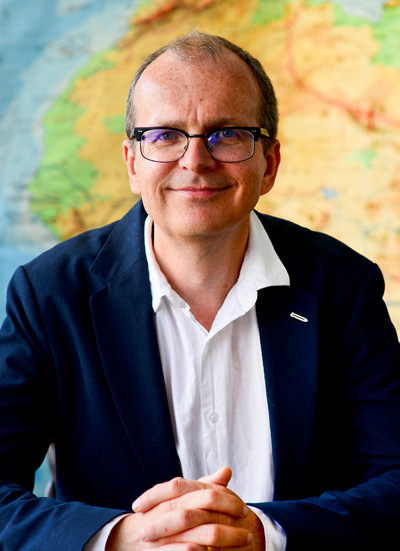My story and accessible travel
Date: 8th July 2019
 My life is full of immediate concerns and issues, and a semi-subterranean world of things Iím vaguely conscious of. Until a few years ago, accessible travel was one of them.
My life is full of immediate concerns and issues, and a semi-subterranean world of things Iím vaguely conscious of. Until a few years ago, accessible travel was one of them.
At that point a prolonged period of serious ill health made travel very difficult for me. A lot of things crowd on you when are unwell, and I found that spending most of my time at home compounded it.
Rather than just missing travel I came to realise I needed it. Different places and experiences take you outside yourself, and help with your mental health and a sense of being fully alive.
My confidence dropped and planning travel became much harder than before. It wasn't just that I needed more information, but that I found making decisions of any kind harder.
I joined billions of others who for different reasons, including poverty as well as illness or disability, realised what it felt like to look at a world of travel that wasnít possible.
My wife also joined this group. Not because she was unwell, but because I was and I needed her love and support. The impacts of illness, disability and ageing are far reaching among families, friends and work colleagues.
Sadness was one emotion. However I also felt to an extent excluded from the possibility of travel. An excluded status was an eye-opener for a white, Western and relatively privileged male.
Once I became well again after a kidney transplant made possible by a donation from my wife, I decided that one of my big focuses would be to work with the team at Responsible Travel and all our amazing tour operators to develop a stronger accessible travel offering through our site.
Iím proud that we now have over 100 adventurous trips all over the world - from a Golden Triangle tour of India to Gorillas in Rwanda and the Peak District in the UK - all screened and labelled for different accessibility issues.
In planning this section, I learned that many disabilities are not visible; that cognitive and mental health issues are just as important as mobility, sight and hearing. We need more wheelchair ramps, but itís much more than this.
I learnt that staggeringly large numbers of people are affected, but that we donít see them out and about much because they are at home, and not from choice.
Finally I learnt that the issue is not disabled travellers, but that we havenít made travel accessible for travellers with a disability.
This led to the second chapter in The Fork in the Road: Our Manifesto for the Future of Tourism focussing on accessible travel. We want to raise opportunities and issues in accessible travel from subconscious to the top of our minds in our industry.
Please help however you can. Thank you.

At that point a prolonged period of serious ill health made travel very difficult for me. A lot of things crowd on you when are unwell, and I found that spending most of my time at home compounded it.
Rather than just missing travel I came to realise I needed it. Different places and experiences take you outside yourself, and help with your mental health and a sense of being fully alive.
My confidence dropped and planning travel became much harder than before. It wasn't just that I needed more information, but that I found making decisions of any kind harder.
I joined billions of others who for different reasons, including poverty as well as illness or disability, realised what it felt like to look at a world of travel that wasnít possible.
My wife also joined this group. Not because she was unwell, but because I was and I needed her love and support. The impacts of illness, disability and ageing are far reaching among families, friends and work colleagues.
Sadness was one emotion. However I also felt to an extent excluded from the possibility of travel. An excluded status was an eye-opener for a white, Western and relatively privileged male.
Once I became well again after a kidney transplant made possible by a donation from my wife, I decided that one of my big focuses would be to work with the team at Responsible Travel and all our amazing tour operators to develop a stronger accessible travel offering through our site.
Iím proud that we now have over 100 adventurous trips all over the world - from a Golden Triangle tour of India to Gorillas in Rwanda and the Peak District in the UK - all screened and labelled for different accessibility issues.
In planning this section, I learned that many disabilities are not visible; that cognitive and mental health issues are just as important as mobility, sight and hearing. We need more wheelchair ramps, but itís much more than this.
I learnt that staggeringly large numbers of people are affected, but that we donít see them out and about much because they are at home, and not from choice.
Finally I learnt that the issue is not disabled travellers, but that we havenít made travel accessible for travellers with a disability.
This led to the second chapter in The Fork in the Road: Our Manifesto for the Future of Tourism focussing on accessible travel. We want to raise opportunities and issues in accessible travel from subconscious to the top of our minds in our industry.
Please help however you can. Thank you.




